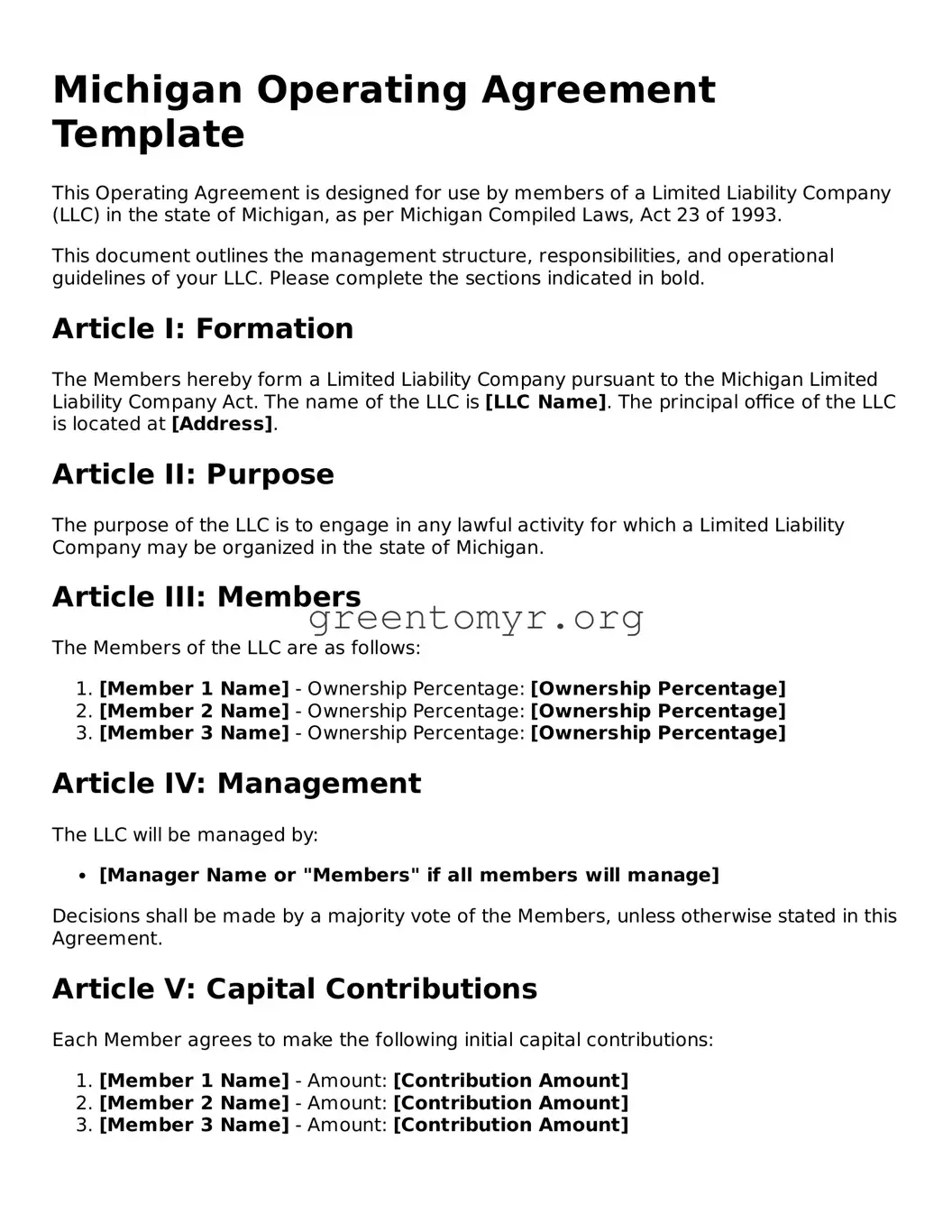Michigan Operating Agreement Template
This Operating Agreement is designed for use by members of a Limited Liability Company (LLC) in the state of Michigan, as per Michigan Compiled Laws, Act 23 of 1993.
This document outlines the management structure, responsibilities, and operational guidelines of your LLC. Please complete the sections indicated in bold.
Article I: Formation
The Members hereby form a Limited Liability Company pursuant to the Michigan Limited Liability Company Act. The name of the LLC is [LLC Name]. The principal office of the LLC is located at [Address].
Article II: Purpose
The purpose of the LLC is to engage in any lawful activity for which a Limited Liability Company may be organized in the state of Michigan.
Article III: Members
The Members of the LLC are as follows:
- [Member 1 Name] - Ownership Percentage: [Ownership Percentage]
- [Member 2 Name] - Ownership Percentage: [Ownership Percentage]
- [Member 3 Name] - Ownership Percentage: [Ownership Percentage]
Article IV: Management
The LLC will be managed by:
- [Manager Name or "Members" if all members will manage]
Decisions shall be made by a majority vote of the Members, unless otherwise stated in this Agreement.
Article V: Capital Contributions
Each Member agrees to make the following initial capital contributions:
- [Member 1 Name] - Amount: [Contribution Amount]
- [Member 2 Name] - Amount: [Contribution Amount]
- [Member 3 Name] - Amount: [Contribution Amount]
Article VI: Distributions
Distributions of profits and losses shall be allocated to the Members in proportion to their respective ownership percentages.
Article VII: Meetings
Regular meetings of the Members shall be held annually at a time and place determined by the Members. Special meetings may be called at any time by any Member.
Article VIII: Amendments
This Operating Agreement can be amended only with the unanimous consent of the Members.
Article IX: Indemnification
The Company shall indemnify its Members, Managers, and employees to the fullest extent permitted by law against any and all losses and expenses incurred in connection with the Company.
Article X: Governing Law
This Agreement shall be governed by and construed in accordance with the laws of the state of Michigan.
IN WITNESS WHEREOF, the undersigned have executed this Operating Agreement as of the [Date].
_____________________________ [Member 1 Name]
_____________________________ [Member 2 Name]
_____________________________ [Member 3 Name]
